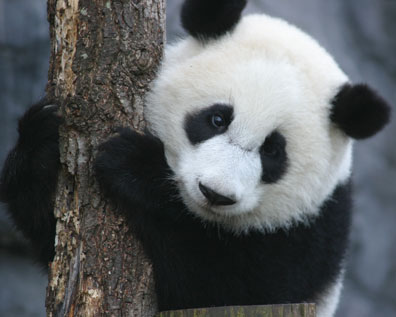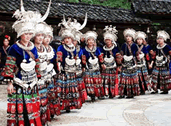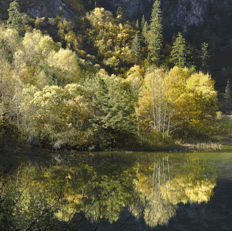Lotus - A trusted name in family travel
Sichuan Province

 Sichuan, known throughout the world as the home to China’s
cultural icon, the giant panda, is also considered the largest province
in China. It draws Chinese tourists as well as visitors from
around the globe who want to immerse themselves in the rich traditions
and experiences offered here. Sichuan has long been considered a
key agricultural asset for the nation and is sometimes referred
to as the “Valley of Abundance”. It boasts 87
million people, has a land mass of 187,000 miles and is bordered
on the west by the Tibetan Highlands and by the Three Gorges Dam
and Yangtze River on the east.
Sichuan, known throughout the world as the home to China’s
cultural icon, the giant panda, is also considered the largest province
in China. It draws Chinese tourists as well as visitors from
around the globe who want to immerse themselves in the rich traditions
and experiences offered here. Sichuan has long been considered a
key agricultural asset for the nation and is sometimes referred
to as the “Valley of Abundance”. It boasts 87
million people, has a land mass of 187,000 miles and is bordered
on the west by the Tibetan Highlands and by the Three Gorges Dam
and Yangtze River on the east.
Food
In addition, there are a host of other attractions in Sichuan
for those whose children have origins there or those who
wish to explore and spend time visiting this beautiful valley basin area
of China. Of course, for all visitors to Sichuan, it is a
perfect opportunity to dig into the famously “hot and spicy” Sichuan
cuisine. Spicy, hot, fresh and fragrant are the words used
to describe this famous cuisine. Sichuan food is considered
one of the great traditions of Chinese cuisine. It is typified
with bold and spicy flavors infused with garlic, chili peppers,
Sichuan peppercorn as well as the pungent flavors of peanuts, sesame
paste and ginger. Kung Pao chicken is just one of the well-known
Sichuan dishes known around the world. During many Lotus
Travel tours, there is an opportunity to prepare your own local
Sichuan “hot pot” dishes and delight in eating them.
“Must See”
Following a wonderful Sichuan meal, another “must see” for
a visitor is to visit a local park and tea house sporting teapots
with an elongated tea spout (up to 3 feet long). It
is fun to watch the server pour your drink into a tiny teacup while
standing 4-5 feet away--- and not spill a drop! Many families
drink their tea in an open air tea house with a lovely evening breeze
and take in local performance of Sichuan opera. This is a
regional cultural tradition, which originated atthe end of the
Ming Dynasty (around 1600’s) when immigrants flooded into
the area for  its fertile land. Sichuan opera, which is brisk and
humorous, evolved from the different dramas which had been brought
in to blend with the local dialect, customs, folk music and dances. This
unique regional cultural tradition derived its identity from traditions
of ancient people who painted their faces to drive away wild animals. Now
this local artistry absorbs this ancient skill and perfects it into
an art.
its fertile land. Sichuan opera, which is brisk and
humorous, evolved from the different dramas which had been brought
in to blend with the local dialect, customs, folk music and dances. This
unique regional cultural tradition derived its identity from traditions
of ancient people who painted their faces to drive away wild animals. Now
this local artistry absorbs this ancient skill and perfects it into
an art.
Sometimes, actors will change more than 10 masks in less than
20 seconds! Different masks are used to show different emotions,
expressing moods and feelings with the masks. From green to blue,
red, yellow, brown, black, dark and gold, these masks show fear,
tension, relaxation, shyness, deceit, desperation, outrage, and
more emotions to fit the story. “Face changing” happens
so quickly that most visitors leave the performance engrossed in
deep discussion on how what they just witnessed on stage could be
humanly possible. Locals consider this art form very highly and
skilled “face changers” are specifically trained and
perform in Sichuan province.
Locales & Ethnicities
 Chengdu,
the capital of Sichuan, is the center of politics, commerce, and
military of the Sichuan Area. Chengdu is the habitat
of the giant pandasand city of the cotton rose hibiscus
because of this it is known as the capital of “heavenly state” (Tian
Fu Zhi Guo). It is the center for processing adoptions in
Sichuan and is a key tourist city for visiting foreigners from around
the world. Though it is a modern city, it retains a relaxed
charm and boasts a large number of lush parks where city dwellers
relax, visit and spend their free time. Many parks also contain
tea houses and gardens and some visitors declare Chengdu their favorite
China city.
Chengdu,
the capital of Sichuan, is the center of politics, commerce, and
military of the Sichuan Area. Chengdu is the habitat
of the giant pandasand city of the cotton rose hibiscus
because of this it is known as the capital of “heavenly state” (Tian
Fu Zhi Guo). It is the center for processing adoptions in
Sichuan and is a key tourist city for visiting foreigners from around
the world. Though it is a modern city, it retains a relaxed
charm and boasts a large number of lush parks where city dwellers
relax, visit and spend their free time. Many parks also contain
tea houses and gardens and some visitors declare Chengdu their favorite
China city.
 There are several minority groups now living in Sichuan
along with Han Chinese people. There are also Yi, Hui, Quian,
Miao and Tibetan, which infuses the province with many local customs
and there are several local dialects spoken, which may be indistinguishable
to other Chinese citizens from big cities like Guangdong or Beijing.
There are several minority groups now living in Sichuan
along with Han Chinese people. There are also Yi, Hui, Quian,
Miao and Tibetan, which infuses the province with many local customs
and there are several local dialects spoken, which may be indistinguishable
to other Chinese citizens from big cities like Guangdong or Beijing.
Sichuan has three places on the world cultural and natural heritage list which are: the Jiuzhaigou known for its multi-level waterfalls and colorful lakes: the Huanglong scenic area’s breathtaking landscapes and geological landforms; and the Emei Mountain where visitors can interact with friendly monkeys. However, what draws more tourists than the beautiful scenery is the opportunity to hold a panda at the Chengdu Panda Research and Breeding Center. This reserve is the only spot in the world which provides this opportunity for visitors and is considered a “must see” for many adoptive families.
Special Volunteer Tour
During July 2011, Lotus Travel will be sponsoring a unique volunteer
opportunity in coordination with Habitat for Humanity which will
undertake building a housing project near Chengdu in an undeveloped
area. Click Habitat
tour to see full details.